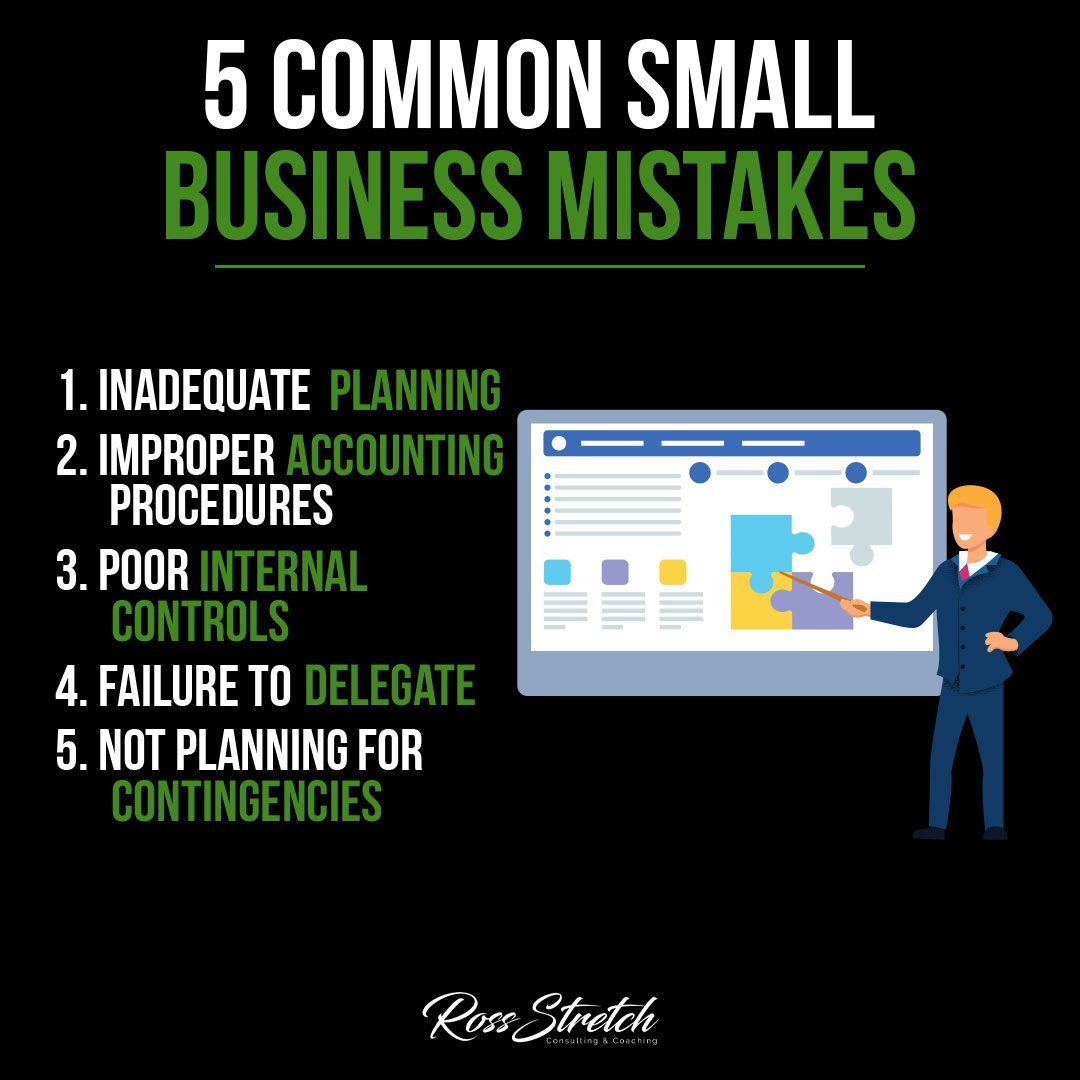Introduction:
Starting a small business is an exciting venture, but it comes with its fair share of challenges. Many entrepreneurs make common mistakes that can hinder the growth and success of their businesses. In this infographic, we will explore the top 5 common small business mistakes and provide valuable insights on how to avoid them. By being aware of these pitfalls and implementing effective strategies, you can position your business for success and growth. Let’s dive into the key mistakes to avoid for your small business.
By recognizing and addressing these common mistakes, small business owners can pave the way for growth and prosperity.
Ross Stretch
Inadequate Planning:
One of the most critical mistakes small business owners make is inadequate planning. Proper planning is the foundation for any successful business. Consider the following aspects:
- Failure to create a detailed business plan can lead to aimless operations and a lack of direction.
- Insufficient market research may result in not understanding your target audience and competitors, leading to ineffective marketing strategies.
- Inadequate financial planning can lead to unexpected cash flow problems, hindering the business’s ability to grow and thrive.
Improper Accounting Procedures:
Accurate financial records and proper accounting procedures are essential for a small business’s financial health. Avoid these accounting mistakes:
- Mixing personal and business finances can lead to confusion and inaccurate financial reporting.
- Failure to maintain organized records may result in missing crucial deductions and overpaying taxes.
- Not tracking expenses properly can lead to overspending and financial mismanagement.
Poor Internal Controls:
Small businesses often lack proper internal controls, leaving them vulnerable to financial losses and fraudulent activities. Consider these internal control mistakes:
- Lack of segregation of duties can result in increased opportunities for fraud and financial errors.
- Failure to conduct regular financial audits can lead to undetected errors and misappropriation of funds.
- Insufficient monitoring of inventory and assets may result in theft and losses that go unnoticed.
Failure to Delegate:
Many small business owners struggle to delegate tasks, thinking they can handle everything themselves. This can hinder growth and limit the business’s potential. Consider the importance of delegation:
- Taking on too much responsibility can lead to burnout and reduced productivity.
- Not trusting employees to handle certain tasks can demotivate and hinder their professional growth.
- Effective delegation allows business owners to focus on strategic planning and growth, while team members handle day-to-day operations.
Not Planning for Contingencies:
Unexpected events and challenges are inevitable in the business world. Failing to plan for contingencies can leave a business vulnerable to severe disruptions. Consider the importance of contingency planning:
- Lack of emergency funds can lead to financial struggles when facing unforeseen circumstances like economic downturns or natural disasters.
- Failure to have a business continuity plan can result in extended downtime and loss of customers during crises.
- Not having a backup plan for key personnel can lead to significant disruptions if they leave the company unexpectedly.
Conclusion:
Avoiding common small business mistakes is crucial for long-term success. Adequate planning, proper accounting, and strong internal controls are essential for a healthy financial foundation. Learning to delegate and planning for contingencies can ensure the business remains resilient and adaptable to unforeseen challenges. By recognizing and addressing these common mistakes, small business owners can pave the way for growth and prosperity. Remember, every successful business requires constant learning and improvement, so stay vigilant in your pursuit of excellence.


